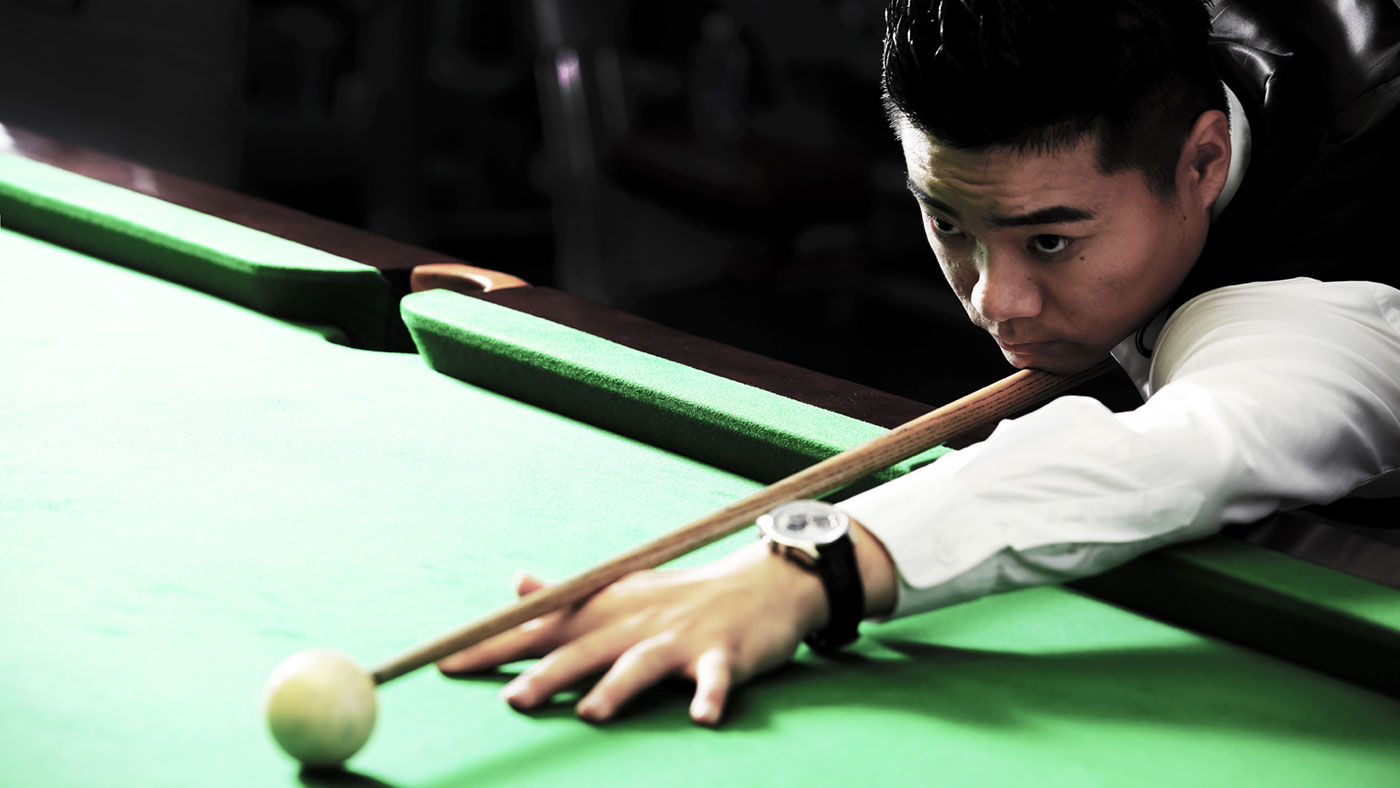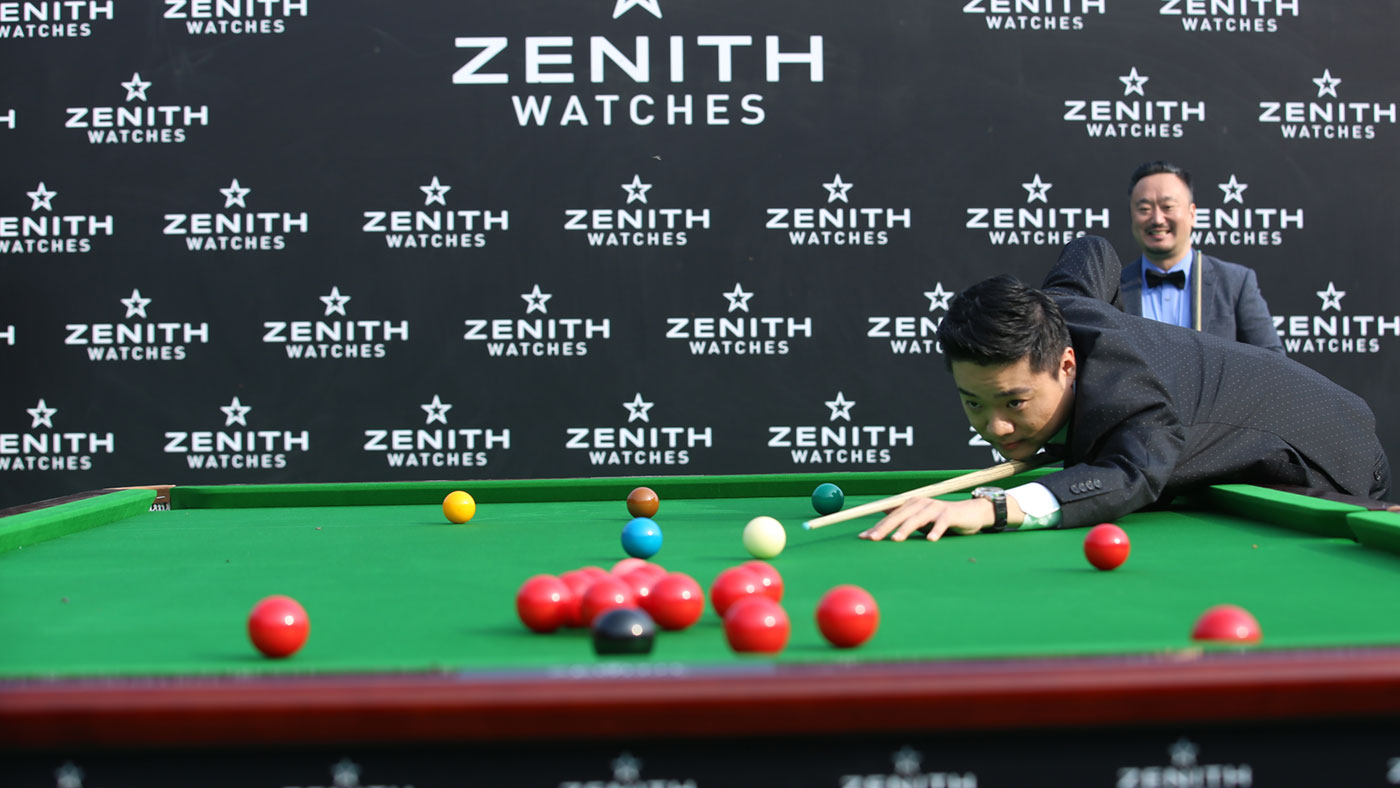Right on cue: Ding Junhui
The former world number one on training to reach the top, the future of Chinese snooker, and plans to win the World Championship

A free daily email with the biggest news stories of the day – and the best features from TheWeek.com
You are now subscribed
Your newsletter sign-up was successful
When I was young I had a few heroes who I watched on TV. My favourite was Ronnie O’Sullivan. I also watched Steve Davis, Stephen Hendry, and Ken Doherty. They were all great, but I liked to watch Ronnie the most because he played so fast.
I first got into snooker as a child because my father took me to play Chinese Eight Ball pool every weekend. He would take me downstairs because it was just next to our flat. We started when I was eight years old, and after a couple of months of Eight Ball we moved on to snooker and I loved it. I would practise every day for about two or three hours potting balls. Then in the summer holidays we went to Shanghai, where my father found a coach to improve my game. That was when I started to play more, maybe five or six hours a day.
I was 12 when I left school and started training full time. It was hard sometimes, because when you’re young you just want to have fun outside with your friends. Sometimes I found it difficult to concentrate for such long periods of time. By 13 years old I was practising for eight or nine hours a day.
The Week
Escape your echo chamber. Get the facts behind the news, plus analysis from multiple perspectives.

Sign up for The Week's Free Newsletters
From our morning news briefing to a weekly Good News Newsletter, get the best of The Week delivered directly to your inbox.
From our morning news briefing to a weekly Good News Newsletter, get the best of The Week delivered directly to your inbox.
These days my daily routine is nearly always the same when I’m training. I wake up at 7am and run in the morning. Running makes you feel fresh and prepares you for the long matches. At 8am I have breakfast and then start practising from 9 to 12. After lunch I start again at 1pm and play until 5pm. Then I have dinner, and after that we’ll do another one or maybe two hours practise playing with somebody or against myself.
The most important person in helping me get where I am today is my father. He worked very hard to give me the opportunity to train, play, and become a stronger snooker player. A couple of times he has come to watch me in the UK, but it’s not so easy for him here because he misses home a lot. When I play in China he comes and supports me for the whole tournament, which is great.
It’s a good thing for China to have famous players these days. Snooker is becoming more and more popular there because of players like myself and, nowadays, all the other Chinese players in the top 100. When I turned pro there were only three of us in the top 100. But we’ve tried hard to make the sport more popular in China.

Before a lot of people loved snooker, but they didn’t have a good place to play – now the clubs in China are much better. People were watching snooker before but not playing, and now they are. So that’s been a big change. With the improved facilities in China and all the high-profile Chinese players, more kids are being attracted to the game now. Families want their children to play snooker. It’s good news for snooker as a sport.
A free daily email with the biggest news stories of the day – and the best features from TheWeek.com
My advice for young players would be that I want them to be happy, to enjoy it. When I was young I would have told you that it can be hard to train that much. But you need the practice, and for that you need to be happy. I think there will be many more Chinese players in the top 100 in the future. There will be a few new Chinese players on the tour next season. I believe the trend will continue.
When I became world number one, the reaction in China was amazing. I got so many congratulations from snooker fans and my friends, but it was quite a short time, so I didn’t get very long to think about it. I hope I can stay there for longer in the future. I believe I can get back on top so when I do it again I want to have it for longer and to enjoy that feeling. Being world number one has always been my target and dream.
Playing in the 2016 World Championship final was the biggest match of my life. It’s the only time I’ve been in the final. It was huge for my family and me. I was disappointed to lose, but I tried to learn as much as I could from the experience. And I got to the semi-final this year so I just have to keep working even harder.
I think I will be able to win the World Championship in the next few years. I believe in myself that I can win it. So hopefully it will be just a couple of years. I’m one of the youngest ones out there so I have time.
This season I’ve been wearing my Zenith watch, my new sponsor. I wore it at the World Championship for every match. I feel very comfortable with the watch on. I love how it looks, very simple and clean. Timing is important in snooker and these days I am trying to play at a quicker speed. At the World Championship I played much quicker. It means I have to think quickly too. That way you don’t have time to think about anything else like missing balls. You’re only thinking about the next shot.
Of course, speed and timing is important for making 147 maximum breaks. I’ve made six in my career so far, and each one was hard. I can’t do it like Ronnie, but that’s OK, I’m working on my own style. I just want to make more maximums, win more matches and one day… the World Championship.
DING JUNHUI is a Chinese professional snooker player and an ambassador for Zenith Watches; zenith-watches.com
-
 Local elections 2026: where are they and who is expected to win?
Local elections 2026: where are they and who is expected to win?The Explainer Labour is braced for heavy losses and U-turn on postponing some council elections hasn’t helped the party’s prospects
-
 6 of the world’s most accessible destinations
6 of the world’s most accessible destinationsThe Week Recommends Experience all of Berlin, Singapore and Sydney
-
 How the FCC’s ‘equal time’ rule works
How the FCC’s ‘equal time’ rule worksIn the Spotlight The law is at the heart of the Colbert-CBS conflict